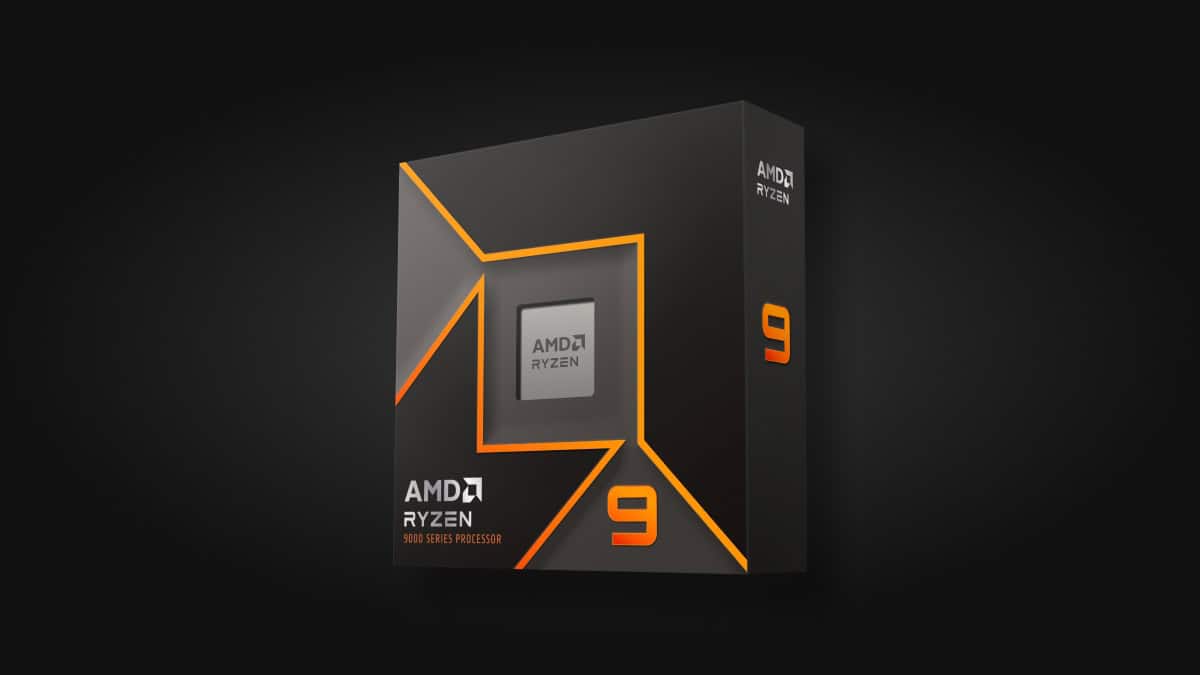AMD’s new Ryzen 9000 series processors have had a significant impact in the tech world. These chips are based on the Zen 5 architecture and offer notable improvements in speed and power. The top-of-the-line Ryzen 9 9950X features up to 16 cores and 32 threads, making it a powerful option for demanding tasks. The Ryzen 9000 lineup is designed for both desktop and laptop users. In addition to the hardware improvements, AMD has made strides in AI technology, integrating built-in AI features into the new chips, which could potentially change the way we interact with our computers.
With the powerful Zen 5 architecture and the all-new AM5 socket, AMD has once again set a new standard with its Ryzen 9000 series processors. These chips, built on the innovative Zen 5 architecture, offer impressive core counts, clock speeds, and advanced features to meet the needs of a wide range of users, from avid gamers to content creators. The lineup includes high-performance options tailored for gamers, content creators, and demanding users. From the flagship Ryzen 9 9950X to the robust Ryzen 9 9900X, and the well-balanced Ryzen 7 9700X and Ryzen 5 9600X, AMD is poised to redefine possibilities in desktop computing.

These CPUs provide faster speeds for gaming and quicker rendering times for video work, exciting both gamers and content creators. The Ryzen 9000 series aims to solidify AMD’s position at the top of the processor market.
AMD 9000 Series Overview
Processor Options
| Name | Core Count | Performance Core Clock | Performance Core Boost Clock | TDP | Integrated Graphics | Price |
|---|---|---|---|---|---|---|
| AMD Ryzen 5 9600X | 6 | 3.9 GHz | 5.4 GHz | 65 W | Radeon | $279 |
| AMD Ryzen 7 9700X | 8 | 3.8 GHz | 5.5 GHz | 65 W | Radeon | $359 |
| AMD Ryzen 9 9900X | 12 | 4.4 GHz | 5.6 GHz | 120 W | Radeon | $449 |
| AMD Ryzen 9 9950X | 16 | 4.3 GHz | 5.7 GHz | 170 W | Radeon | $649 |
Release Dates
| AMD Ryzen 9000 Series Processor | Release Date |
|---|---|
| Ryzen 5 9600X | August 8, 2024 |
| Ryzen 7 9700X | August 8, 2024 |
| Ryzen 9 9900X | August 15, 2024 |
| Ryzen 9 9950X | August 15, 2024 |
AMD’s Latest Powerhouses: Ryzen 9000 Series
The Lineup
The initial Ryzen 9000 series lineup features four powerful processors:
| Model | Cores/Threads | Base Clock (GHz) | Boost Clock (GHz) | TDP (W) | L3 Cache (MB) |
|---|---|---|---|---|---|
| Ryzen 9 9950X | 16/32 | 4.3 | 5.7 | 170 | 64 |
| Ryzen 9 9900X | 12/24 | 4.4 | 5.6 | 120 | 64 |
| Ryzen 7 9700X | 8/16 | 3.8 | 5.5 | 65 | 32 |
| Ryzen 5 9600X | 6/12 | 3.7 | 5.3 | 65 | 32 |
Ryzen 9 9950X and 9900X: The Performance Kings

The Ryzen 9 9950X and 9900X sit at the top of the stack, offering the highest core and thread counts for exceptional multitasking and demanding workloads. With boost clocks reaching up to 5.7 GHz and 5.6 GHz, respectively, they deliver incredible single-threaded and multi-threaded performance.
Key Features:
- High core and thread count for exceptional multitasking and demanding workloads.
- Impressive clock speeds for excellent single-threaded and multi-threaded performance.
- Large L3 cache for faster data access.
- Support for the latest technologies like PCIe 5.0 and DDR5 memory.
- Integrated graphics for basic display output.
- Unlocked for overclocking potential.
Ryzen 7 9700X and Ryzen 5 9600X: Balanced Powerhouses

The Ryzen 7 9700X and Ryzen 5 9600X strike a balance between performance and value. These chips are ideal for gamers and content creators who need ample processing power without breaking the bank. They still offer impressive clock speeds and respectable core counts, making them capable of handling a variety of tasks with ease.
Pushing Performance Boundaries: A Deeper Dive into the AMD Ryzen 9000 Series
AMD’s Ryzen 9000 series isn’t just about impressive specs on paper; it’s about delivering real-world performance gains that cater to the needs of gamers, content creators, and power users. Let’s delve further into the benchmarks, features, and potential impact of these cutting-edge processors.
Early Benchmarks: A Promising Start
- Multi-Threaded Dominance: The Ryzen 9 9950X, with its 16 cores and 32 threads, shines in multi-threaded benchmarks, rivaling or even surpassing Intel’s top-tier offerings in tasks like video editing, 3D rendering, and content creation.
- Single-Core Performance Gains: While not always leading the pack, the Ryzen 9000 series shows significant improvements in single-core performance compared to its predecessors, closing the gap with Intel in gaming and other applications that rely heavily on single-threaded performance.
- Gaming Benchmarks: Early gaming tests show promising results, with the Ryzen 9000 series delivering smooth frame rates and competitive performance in various titles. The increased L3 cache and improved IPC (Instructions Per Cycle) contribute to a more responsive and enjoyable gaming experience.
Beyond the Specs: Additional Features and Technologies
- Precision Boost Overdrive 2 (PBO2): This intelligent overclocking feature dynamically adjusts your CPU’s clock speeds based on your system’s cooling and power capabilities. It allows you to squeeze out extra performance without the need for manual overclocking.
- Curve Optimizer: For enthusiasts seeking even more control, Curve Optimizer lets you fine-tune your CPU’s voltage and frequency curve, potentially achieving higher performance or improved efficiency.
- Resizable BAR Support: This technology enables compatible graphics cards to access the CPU’s entire frame buffer, potentially leading to performance boosts in certain games.
- Integrated Radeon Graphics: While not intended for high-end gaming, the integrated Radeon graphics provide basic display output and can handle casual gaming, video playback, and other light tasks.
Market Impact and Future Outlook
- AM5 Platform Adoption: The Ryzen 9000 series’ new AM5 socket might encourage users to upgrade their motherboards and coolers, potentially stimulating the PC component market.
- Competitive Landscape: With its strong performance and competitive pricing, the Ryzen 9000 series is poised to challenge Intel’s dominance and provide consumers with more choices in the high-performance CPU segment.
- AI Acceleration: The integrated Ryzen AI engine opens doors for new AI-powered applications and experiences on the desktop. This could lead to innovations in areas like video editing, content creation, and even gaming.
Zen 5 Architecture: The Backbone

All four processors in the Ryzen 9000 series are built on the Zen 5 architecture, which brings significant improvements over its predecessor. These improvements translate to enhanced performance, efficiency, and overall user experience.
AM5 Socket

The Ryzen 9000 series processors introduce the new AM5 socket, signaling a platform change for AMD. This new socket brings support for cutting-edge technologies like PCIe 5.0 and DDR5 memory, ensuring your system is future-proofed for years to come.
Key Takeaways
- Ryzen 9000 CPUs use Zen 5 tech for better speed and power
- New AI features are built into the chips for smarter computing
- These processors target both casual users and pros who need high performance
Specifications
AMD Ryzen 5 9600X Specifications
- Cores/Threads: 6/12
- Base Clock: 3.9 GHz
- Boost Clock: Up to 5.4 GHz
- TDP: 65W
- L3 Cache: 32MB
- Socket: AM5
- Architecture: Zen 5 (Granite Ridge)
- PCIe Support: PCIe 5.0
- Memory Support: DDR5
- Integrated Graphics: AMD Radeon Graphics (2 Compute Units, up to 2200 MHz)
- Launch Date: August 8, 2024
- MSRP: $279
AMD Ryzen 7 9700X Specifications
- Cores/Threads: 8 cores / 16 threads
- Base Clock: 3.8 GHz
- Boost Clock: Up to 5.5 GHz
- TDP: 65W
- L3 Cache: 32MB
- Socket: AM5
- Architecture: Zen 5 (Granite Ridge)
- PCIe Support: PCIe 5.0
- Memory Support: DDR5
- Integrated Graphics: AMD Radeon Graphics (2 Compute Units, up to 2200 MHz)
- Launch Date: August 8, 2024
- MSRP: $359
AMD Ryzen 9 9900X Specifications
- Cores/Threads: 12 cores, 24 threads
- Base Clock: 4.4 GHz
- Boost Clock: Up to 5.6 GHz
- TDP: 120W
- L3 Cache: 64 MB
- Socket: AM5
- Architecture: Zen 5 (Granite Ridge)
- PCIe Support: PCIe 5.0
- Memory Support: DDR5 up to 5600 MHz with ECC
- Integrated Graphics: AMD Radeon Graphics (2 Compute Units, 2200 MHz)
- Launch Date: August 8, 2024
- MSRP: $499
AMD Ryzen 9 9950X Specifications
- Cores/Threads: 16 cores / 32 threads
- Base Clock: 4.3 GHz
- Max Boost Clock: 5.7 GHz
- L3 Cache: 64 MB
- TDP: 170W
- Socket: AM5
- Architecture: Zen 5 (4nm)
- PCIe Support: PCIe 5.0
- Memory Support: DDR5 up to 5600 MHz (with EXPO)
- Integrated Graphics: AMD Radeon Graphics (2 CUs, 2200 MHz)
- Overclocking: Yes (unlocked)
- MSRP: $649
Technical Specifications and Architecture
AMD’s Ryzen 9000 series processors bring major upgrades to the CPU market. These chips use new Zen 5 cores on a 4nm process for better speed and power use.
Core and Thread Count
The top Ryzen 9000 chip has 16 cores and 32 threads. This is the same as the last generation. But the new design makes each core stronger. The lineup includes:
- Ryzen 9 9950X: 16 cores, 32 threads
- Ryzen 9 9900X: 12 cores, 24 threads
- Ryzen 7 9700X: 8 cores, 16 threads
- Ryzen 5 9600X: 6 cores, 12 threads
Each chip has two core complex dies (CCDs). The 9950X has two 8-core CCDs. Lower models have one full CCD and one with fewer cores.
Zen 5 Architecture Details
Zen 5 is built on TSMC’s 4nm process. This new tech packs more transistors in less space. It leads to faster speeds and less power use.
The new design has better branch prediction and wider execution units. This helps the CPU do more work per clock cycle. AMD says Zen 5 is 10-15% faster than Zen 4 at the same clock speed.
Zen 5 also adds new AI features. These help speed up tasks like video editing and 3D rendering.
Clock Speeds and Overclocking
The Ryzen 9 9950X can boost up to 5.7 GHz. This is higher than past models. Base clocks are not yet known but should be over 4 GHz.
AMD supports overclocking on all Ryzen 9000 chips. Users can push speeds even higher with good cooling. The new process helps chips reach higher clocks with less heat.
Power use is also better. The top model has a 170W TDP but can use less power at stock settings.
Memory and Cache Architecture
Ryzen 9000 keeps using DDR5 RAM. It supports faster speeds than before for quicker data access.
Cache sizes have grown:
- L1 cache: 32 KB per core
- L2 cache: 1 MB per core
- L3 cache: 32 MB per CCD (up to 64 MB total)
The larger caches help keep data close to the cores. This cuts down on slow trips to main memory. The result is smoother performance in games and apps.
Market Positioning and Competitive Analysis
AMD’s Ryzen 9000 Series aims to shake up the CPU market. These new chips bring upgrades in speed, AI features, and value.
Pricing and Value Proposition
The Ryzen 9000 Series offers strong value for its price. Early listings show competitive costs. The Ryzen 7 9700X and Ryzen 5 9600X may be priced to attract buyers.
AMD keeps using the AM5 socket. This lets users upgrade without changing motherboards. The chips support fast DDR5-5600 memory. They also have PCIe 5.0 for quick storage and graphics.
Ryzen AI is a key selling point. It adds AI tasks to PCs without extra hardware. This could save money for some users.
Comparison with Intel Offerings
AMD faces tough competition from Intel’s latest chips. The Ryzen 9 9950X will likely go up against the Intel Core i9-14900K.
Intel may have an edge in core count. But AMD focuses on efficiency. Ryzen 9000 chips aim for high performance with less power use.
AMD supports PCIe 5.0 for both storage and graphics at once. This could be a big plus for some users. Intel might not offer this same feature.
Performance in Gaming and Productivity
Early tests show mixed results for Ryzen 9000. Single-core speed looks good. But multi-core scores may not beat Intel by much.
For gaming AMD hopes to close any gaps with Intel. Past Ryzen chips have done well in games like Cyberpunk 2077. The new series aims to keep up or pull ahead.
In work tasks Ryzen often shines. Programs like Blender and Handbrake could run faster on these new chips. The added AI features may boost some productivity apps too.
The Bottom Line
The AMD Ryzen 9000 series represents a significant leap forward in desktop computing. Its combination of powerful performance, innovative features, and competitive pricing makes it an attractive option for a wide range of users. Whether you’re a gamer, content creator, or simply looking for a high-performance machine, the Ryzen 9000 series has something to offer.
FAQs
Is AMD Ryzen 9 better than the i9?
Whether the AMD Ryzen 9 is “better” than the Intel i9 depends on your specific needs and priorities. Early benchmarks suggest Ryzen 9 9950X excels in multi-threaded tasks, often outperforming the i9. However, Intel might retain a slight edge in single-core performance, important for some games and applications. Ultimately, the “better” choice hinges on your workload and budget.
What is the AMD Ryzen 9000 series?
The AMD Ryzen 9000 series represents AMD’s latest generation of high-performance desktop processors. Built on the Zen 5 architecture and a 4nm process, these chips boast improved performance, power efficiency, and new AI capabilities. They target gamers, content creators, and demanding users seeking top-tier performance.
Is Ryzen 9 powerful?
Yes, the Ryzen 9 processors are incredibly powerful. They offer high core and thread counts, impressive clock speeds, and large cache sizes, making them capable of handling even the most demanding tasks with ease.
How much will Ryzen 9000 cost?
The Ryzen 9000 series pricing varies depending on the specific model. Early listings indicate competitive prices, with the Ryzen 9 9950X expected to retail for around $649, the Ryzen 9 9900X for $499, the Ryzen 7 9700X for $359, and the Ryzen 5 9600X for $279.
Is the AMD 9000 series worth it?
Whether the AMD 9000 series is “worth it” depends on your needs and budget. If you’re seeking top-tier performance for demanding tasks like gaming, content creation, or multitasking, the Ryzen 9000 series offers a compelling value proposition. However, if you’re on a tighter budget or your needs are less intensive, previous-generation Ryzen processors or Intel alternatives might be more suitable.
Will Ryzen 9000 require a new motherboard?
Yes, the Ryzen 9000 series requires a new motherboard with the AM5 socket. This is a significant platform change from previous generations, so you’ll need to factor in the cost of a new motherboard when considering an upgrade. However, the AM5 platform offers support for the latest technologies like PCIe 5.0 and DDR5 memory, ensuring your system is future-proofed.







